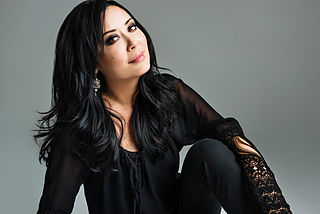A Quote by Dave Abrams
I wasn't trying to write a corrective novel - that would just end up tasting like medicine, and I tried to stay away from polemics as best I could. I think that, if anything, Fobbit is my way of showing readers there's another side to war - the backstage of combat, if you will. If you play a word association game with Americans and say "war," what's the first thing that comes to mind? Soldiers running across a battlefield through a hail of bullets, right? Rambo, smoke, explosions. In Fobbit, I hope readers will see something a little different
Quote Topics
Across
Another
Anything
Association
Away
Backstage
Battlefield
Best
Bullets
Combat
Could
Different
End
Explosions
First
First Thing
Game
Hail
Hope
Just
Like
Like Me
Little
Medicine
Mind
My Way
Novel
Play
Polemics
Rambo
Readers
Right
Running
Say
See
Showing
Side
Smoke
Soldiers
Something
Stay
Tasting
The First Thing
Thing
Think
Through
Tried
Trying
Up
War
Way
Will
Word
Would
Write
Related Quotes
It's disingenous for me to say that I wasn't trying to write a moral novel. By its very nature as a novel about the Iraq War, Fobbit steps into the political conversation. There's no way to avoid that. I can appreciate that readers are probably going to line up on one side of the novel or the other. I hope they go to those polar extremes, actually.
If Fobbit leaves a reader feeling stranded in some bland in-between territory, then I haven't done my job. But having said all that, I didn't consciously write the book with a particular moral intent. I took what I experienced and processed it through the sausage factory of fiction. It's up to readers to interpret what's on the page - as is the case with any novel.
A reader is entitled to believe what he or she believes is consonant with the facts of the book. It is not unusual that readers take away something that is spiritually at variance from what I myself experienced. That's not to say readers make up the book they want. We all have to agree on the facts. But readers bring their histories and all sets of longings. A book will pluck the strings of those longings differently among different readers.
My hope is that 'The New World Haggadah' will open a new world for readers who will see our heritage through a multilingual prism. I wanted to feature medieval and renaissance authors, resistance in World War II, crypto-Jews and activists during the Dirty War in Latin America, songs of protest, and songs of hope.
I've always kind of thought that reviews written by readers for readers are a kind of private space between consumers. It's their right to say anything they like about your material, and authors need to know that and respect that. As for my end, I'm aware of what my sales are, so I know that my books are working in the marketplace, at least for now, and beyond that, I have to just do my thing and stay focused.
This is the nature of war, whose stake is at once the game and the authority and the justification. Seen so, war is the truest form of divination. It is the testing of one's will and the will of another within that larger will which because it binds them is therefore forced to select. War is the ultimate game because war is at last a forcing of the unity of existence.War is god.
I think a lot of the writing, you know, I write is just kind of like that where, you know. I write exactly how I'm feeling sometimes, and hardships that I'm going through. But I always end up, like the choruses are like, "God, You are good. God, you're faithful. You know, I know You understand, You're right here by my side." All these different things. And I just say very personal experiences that I've been through. I mean, it's not always detrimental thing.
I often hear people say that they read to escape reality, but I believe that what they’re really doing is reading to find reason for hope, to find strength. While a bad book leaves readers with a sense of hopelessness and despair, a good novel, through stories of values realized, of wrongs righted, can bring to readers a connection to the wonder of life. A good novel shows how life can and ought to be lived. It not only entertains but energizes and uplifts readers.
I try not to write more than two or three, I try to just write one if possible, I write till the end at least a draft of a play or a novel; but sometimes, I'll take a break for a couple weeks for a project that is paying me money like a television project which I try to stay away from just to stay financially ahead of the game.
We who make stories know that we tell lies for a living. But they are good lies that say true things, and we owe it to our readers to build them as best we can. Because somewhere out there is someone who needs that story. Someone who will grow up with a different landscape, who without that story will be a different person. And who with that story may have hope, or wisdom, or kindness, or comfort. And that is why we write.
I always hope that readers, of my books, will take away whatever is most meaningful to them wherever they are at right now. It might be the message of love. Or what it means to really live. Or the role that emotion does - or does not play - in our lives. But I think ultimately, the thing I took away was the idea of surrender to God.
The only thing I hope for is that, regardless of what the outward world is for different people, different nations, I hope their internal world is similar. And if I, hopefully, have managed to somehow describe my inner world in this book, all I count on is that it will have some resonance among the American readers, or, at the very least, the American readers will treat this book as a kind of a guidebook for my inner world, strange as it may appear.






























